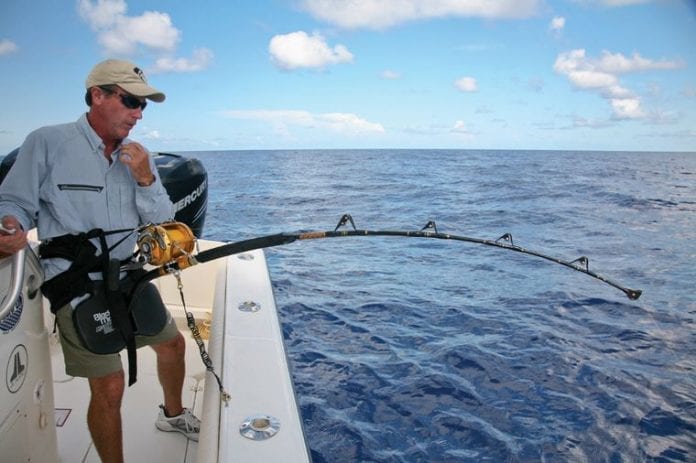No matter how many hours you’ve spent on a boat in your life, you always need to have safety in mind when on the open water. The ocean, lakes and rivers may be familiar to you, but that doesn’t mean that you’re always safe.
The most important safety tip is never to underestimate the water you’re fishing. Weather and water are temperamental, and you have to prepare for any eventuality. Here are eight more tips to keep in mind when you hit the water to do some angling.
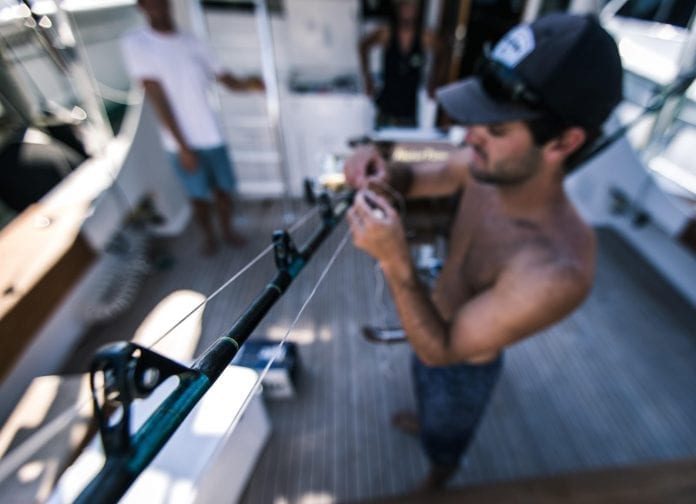
1. Keep Your Boat Tidy
A clean boat is a safe boat. Keep all lines coiled neatly and stowed, and all sharp objects like gutting knives, gaffs, and hooks in a specific, enclosed area. In addition to storing sharp objects securely, keep all knives sheathed. Also, check your livewells and bait tanks to make sure they are secure and you’re not filling your hull with water.
Boats move with the water and your gear shifts with your craft. This is especially so when fishing out on open water when swells can build into enormous waves. Keep your gear tied down, strapped in or locked up to prevent any unexpected shifting.
To maintain a tidy and safe boat, it’s essential to invest in the best available boat parts and equipment such as boat outfitters. Quality components not only enhance your boating experience but also contribute to safety. Ensure your boat is equipped with top-notch gear for anchoring, navigation, and safety.
Invest in sturdy cleats, reliable navigation lights, and state-of-the-art safety equipment. Don’t compromise on the quality of ropes, ensuring they’re durable and resistant to wear. Quality boat parts minimize the risk of malfunctions and accidents, offering peace of mind on the water.
By combining a clean and organized boat with premium equipment, you’ll create a safe and enjoyable environment for all your boating adventures. Prioritize both cleanliness and quality to make the most of your time on the water.
2. Follow Safety Protocol
Most boats have life preservers, a floatable buoy ring, a fire extinguisher and signaling apparatuses like flares, horns or whistles. All these safety devices should be aboard and have a designated place that everyone knows, and they need to be in working order.
Check expiration dates on extinguishers and the sizes and number of life preservers to make sure that everything is above board. Also. plan to bring some extras, like a map of the area, radio, cell phone and flashlights.
There are federal regulations about what safety gear you’re required to keep on board and in good condition. Additionally, there are state regulations on top of the federal ones, so check with the Coast Guard to see what rules you have to follow for onboard gear maintenance.
3. Wear a Life Preserver
Along with understanding how to use all safety equipment on your boat, always have your most important piece of safety equipment, a life preserver, on your body–or close at hand.
You may be a lifelong swimmer who has ample experience in the water, but that won’t matter when disaster hits. The last thing you want when in a boat-related emergency is to be fumbling around for your life preserver. The U.S. Coast Guard estimates that life preservers have saved 80 percent of boat accident victims.
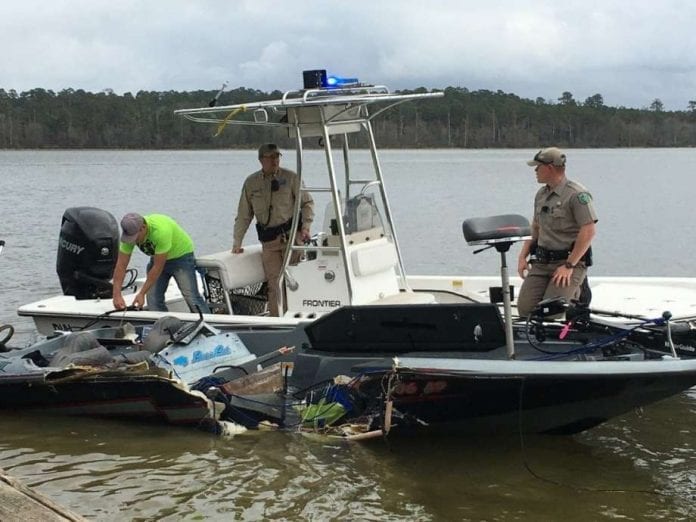
When accidents happen on the water, they happen fast. You may not have the time to find your life preserver and put it on. The safest course of action is to have it on already. If there’s anyone under the age of 18, they should wear their life preserver at all times.
4. Leave a Float Plan
Much as you would when going on an extended hiking and camping trip, give a float plan to someone you trust. The float plan should include the date, time and location of your trip. It’s wise also to note the latest time you may be returning.
If this time passes, your friend should contact the U.S. Coast Guard and submit your float plan to help with a search and rescue effort.
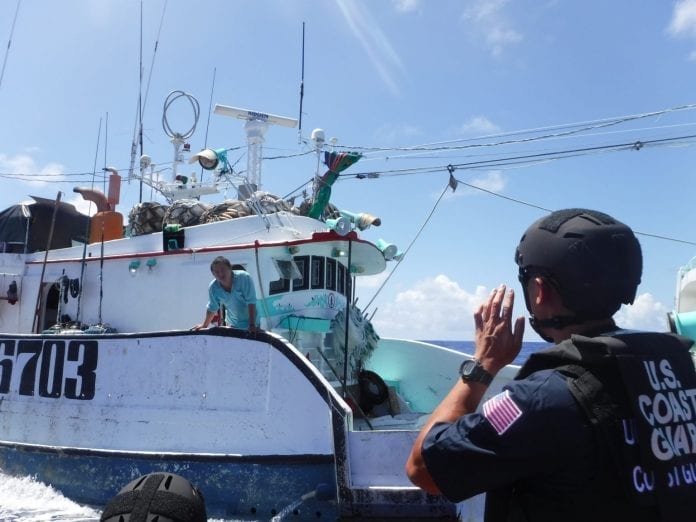
5. Check the Weather and the Water
The weather on the water is notoriously temperamental. Things change very quickly and with minimal warning.
Before you leave for your trip, make sure you have a basic understanding of the weather, the projected forecast and the sea conditions, including the tides and currents. Also, when you head out, inspect waterfronts as these can change daily.
Don’t fish in areas that are prohibited. There’s a reason that certain areas are off-limits. The prohibition could be to protect local flora or fauna, or some structural and environmental hazard in the water.
6. Know Your Physical Limitations
When you’re fishing in the open water, you are at the mercy of the elements. No matter how prepared you are with safety gear and high-performance fishing apparel, you need to know when you have reached your physical limits.
Fatigue, heatstroke and hypothermia set in quickly and can be debilitating and even fatal. Make sure to stay hydrated and covered up as much as possible. Also, remember that the refraction of the sun off the water can bounce up onto your chest, neck and face and cause skin damage. Quality fishing gaiters can help protect these areas as well.
7. Learn the Rules of the Waterways
COLREGS are the international rules for navigating waterways. These rules outline who has the right of way when two boats approach one another, what to do in narrow channels or how to deal with obstacles like locks.
Often, you can find an Introduction to Boating Safety course either online or through your local marina. The person responsible for learning and implementing these critical rules that govern busy waterways is the boat operator.
8. Don’t Boat Under the Influence
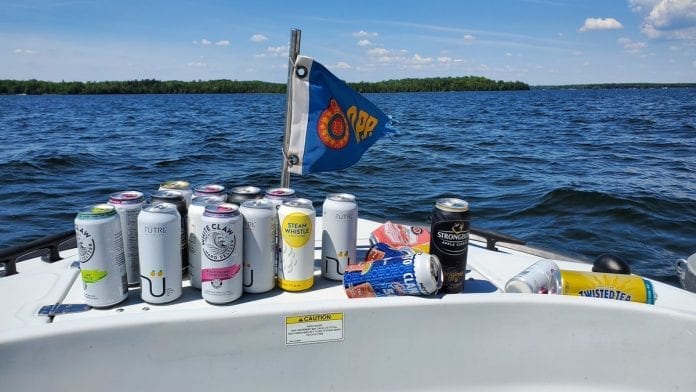
When you’re out on the water, avoid excessive alcohol or drug use, the same as when you’re operating a motor vehicle. Driving a boat impaired is as dangerous as driving a car impaired. So you need to be safe and to have all of the equipment you need.
Any alcohol or drugs you do consume may affect you more quickly than they might on land due to dehydration, fatigue or exposure issues.
Final Thoughts
When out on the open water, you want your boat and its occupants to be as safe as possible at all times. The water is changeable, as is the weather. When emergencies occur on the water, they usually happen with terrifying speed.
Keeping a tidy deck, proper and updated safety gear and a float plan are all essential to staying safe. You should also keep an eye on the weather and the area around you. If you’re the boat operator, you should have a solid understanding of COLREGS and be free from drug or alcohol impairment.
Taking a boat out fishing is a wonderful way to enjoy nature and get away from land-based stress. You get out on the water to relax, but do your due diligence beforehand and take the necessary safety precautions. The best fishing trip on a boat is a safe fishing trip.
